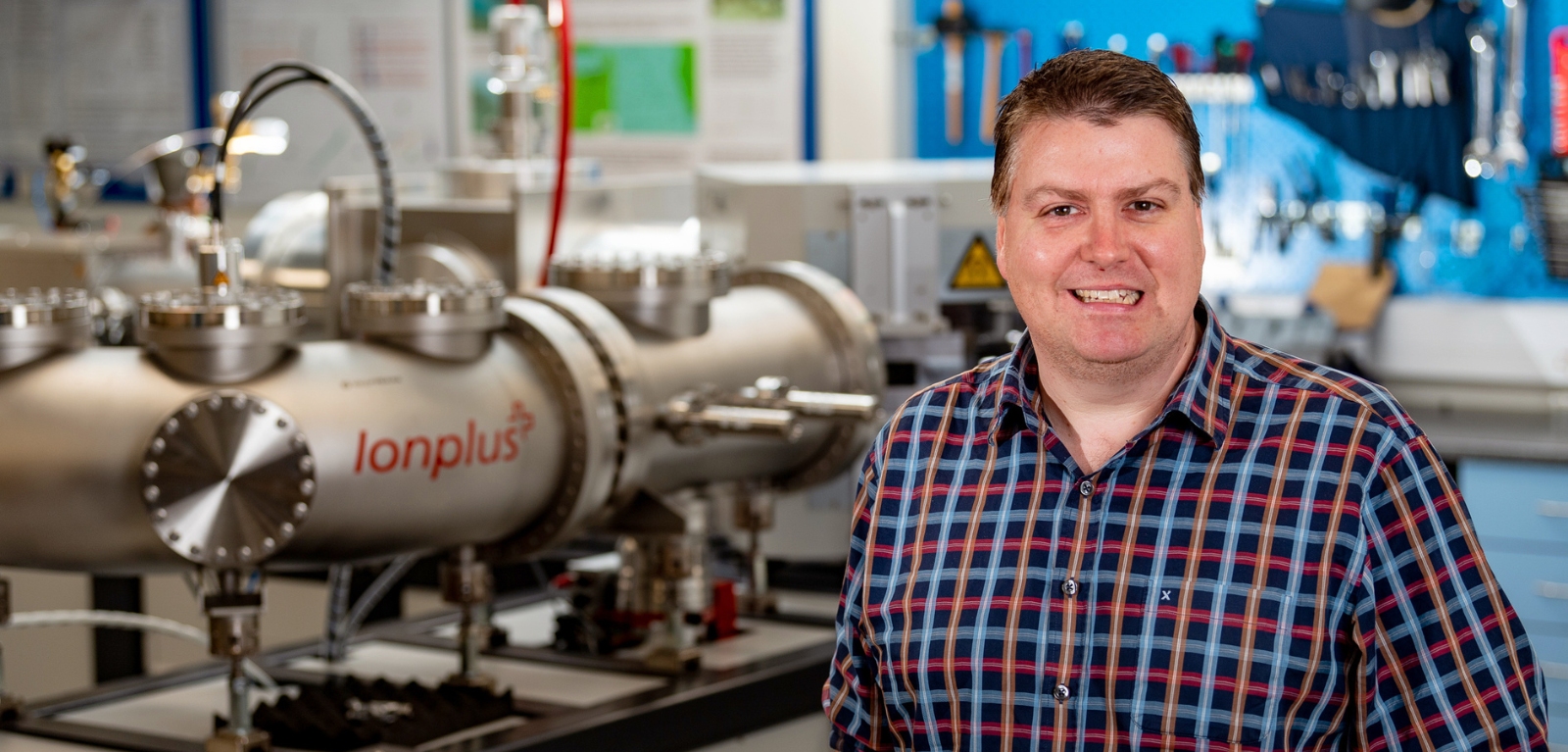Professor Graeme Swindles is Professor of Physical Geography and Director of Geography, Archaeology and Palaeoecology in the School of Natural and Built Environment.
Tell us about your research
I am an Earth System Scientist. I am interested in how our planet functions in terms of how its different 'spheres' (eg atmosphere, biosphere, hydrosphere) interact.
My main area of research examines the response of arctic ecosystems, permafrost and global peatlands to climate change. Our planet's peatlands only occupy only ~3 per cent of the global land area but contain at least a quarter of global soil carbon — twice as much as the world's forests! Peatlands have been locking away carbon for thousands of years and helping to cool the climate. We work out the ages of a lot of peat carbon samples in the 14Chrono Centre using radiocarbon (14C) dating (see photograph).
We are very concerned that the planet's peatlands are degrading in response to climate shifts and human impacts (for example, drainage, burning and peat cutting), and are becoming major sources of greenhouse gases. If this happens then climate change could accelerate dramatically – a real concern that will affect all life on the planet.
What first attracted you to your research field?
I first became interested in our planet as a child growing up in County Antrim. I walked the hills with my father and became very intrigued as to why rocks were different sizes and colours and why lakes were present on the top of some hills and not others. When people started to fully realise climate change was an enormous global problem in the 1990s I was fascinated and the path was set!
What impact is your research having on people's lives?
Climate change is the number one issue facing humanity. My research is allowing us to understand how the ecosystems and the carbon cycle are responding to warming climate. Understanding these interactions is key for understanding what the future planet will be like for humanity. My work is also used to underpin climate models that make numerical predictions of the future. Furthermore, my research helps underpin environmental protection and conservation strategies.
What do you find most rewarding about your work?
I love publishing new papers – it is always such a buzz! However, even more rewarding than that is discussing climate change and its impacts with our undergraduate and postgraduate students. I know that maybe sounds a bit odd, but I always find it very encouraging how our students also share my concerns for the future of our planet.
About Graeme
What do you like to do in your spare time?
I still love walking in the hills. I now live in rural County Down after living in England for 13 years and I am enjoying exploring the landscape. I would say my second love is gardening – it always helps me put my day-to-day work stresses into perspective!
What is your favourite app?
I love those Flight and Ship tracking apps! I love to know where a plane or ship is going to/from.
Tell us an interesting fact about yourself.
I was once on fieldwork sampling a peat bog in an extremely remote location in Peruvian Amazonia and had an extremely close call with a 'Fer-de-lance' – the most dangerous snake in this region and the main cause of fatal snakebite incidents in Central and South America.
What are you most proud of?
My children, Maia (8 years old) and Benjamin (5 years old) Swindles!
